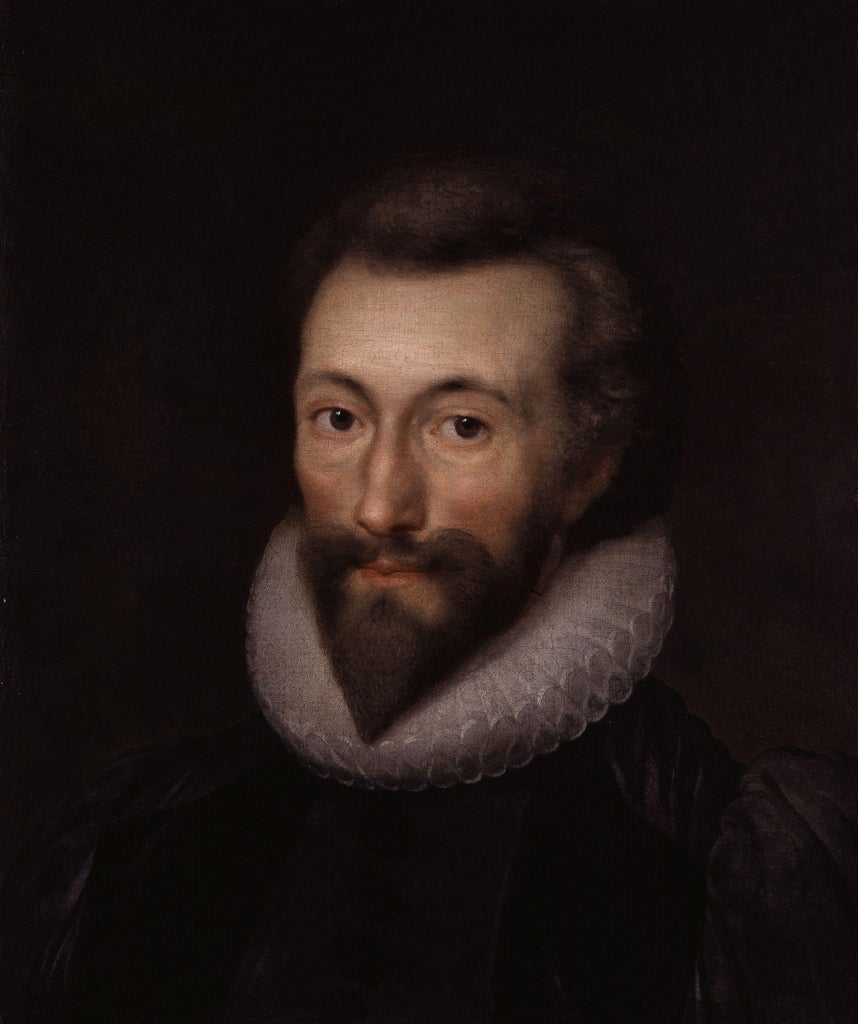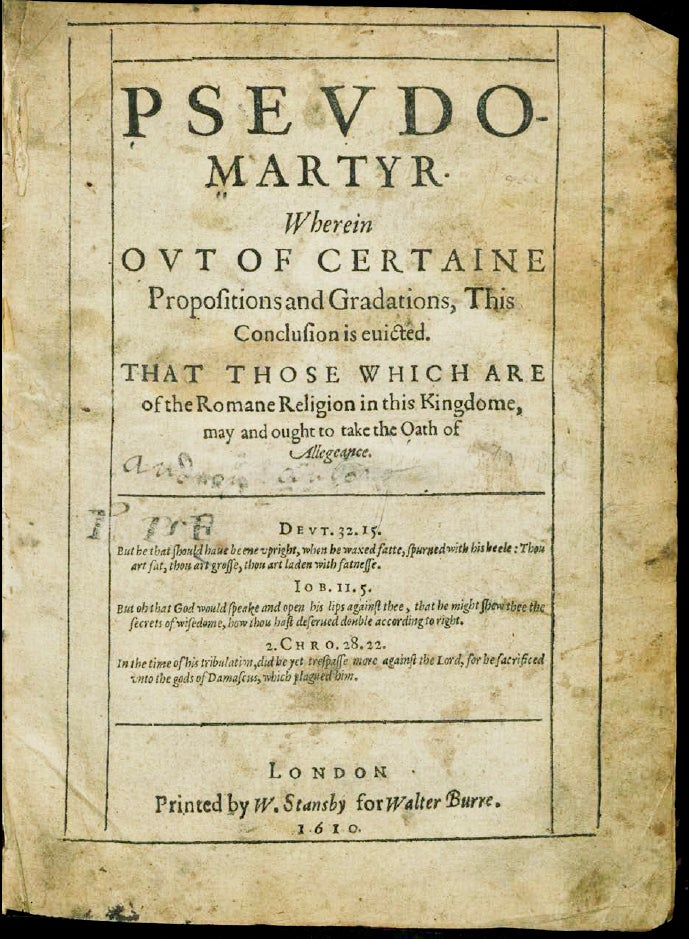For this week’s series of Treasures from Woodstock Theological Library, we highlight our copy of Pseudo-Martyr: Wherein Out of Certain Propositions and Gradations, This Conclusion is Evicted. That Those Which Are Of Romane Religion in this Kingdome, May and Ought To Take the Oath of Allegeance written by the celebrated English poet, John Donne. Donne wrote Pseudo-Martyr when he was 38 and it was his first published work issued in 1610. Our copy is pictured below.
Donne, a former Catholic, converted to the protestant Church of England at age 19. His family, however, were Roman Catholics who had been persecuted and tortured for their beliefs. His maternal grandfather, John Heywood, went into exile and his stepfather, Richard Rainsford, his mother’s third husband, was imprisoned for refusing to take the Oath of Allegiance. Thus, as Olga Valbuena writes in her article “Casuistry, Martydom, and the Allegiance controversy in Donne’s Pseudo Martyr”*: “Behind Donne's pained memory of his family's suffering lies a cold sympathy for those who actively seek persecution when the state offers subjects a way to avoid it through formal compliance with its oaths and acts” (50). Valbuena reiterates this point when she says:
As a former Catholic and descendent of martyrs, John Donne knew all too well the disabilities attendant on the profession of militant Catholicism. But the font of experience that made him wary of an unreflective Catholic martyrdom also made him preternaturally resistant to the absolutist impulse that offered. (53)
So, in his Pseudo-Martyr, Donne attempts to situate the phenomenon of martyrdom as an act which was necessary to the persecuted Christians of the Early Church. Whereas the ancient Roman laws dictated that Christians and their practice were forbidden on pain of death, in 17th century England, the Oath of Allegiance, could be construed as a political allegiance and not necessarily one that might preclude a commitment to Catholicism, or to the Christian faith itself. Donne expresses this not only in the prose of his Pseudo-Martyr but also poetically. These lines from Satire III, underscore this conviction:
Keep the truth which thou hast found; men do not stand
In so ill case here, that God hath with his hand
Signed kings blank-charters to kill whom they hate,
Nor are they vicars, but hangmen to Fate.
Fool and wretch, wilt thou let thy soul be tied
To man's laws, by which she shall not be tried
At the last day?
If you can't visit the Woodstock Theological Library to see the Pseudo-Martyr in person, you can view our digitized copy on Digital Georgetown.
Written by Amy Phillips
* Published in Religion & Literature, vol. 32, No. 2 (Summer 2000), pages 49-80


